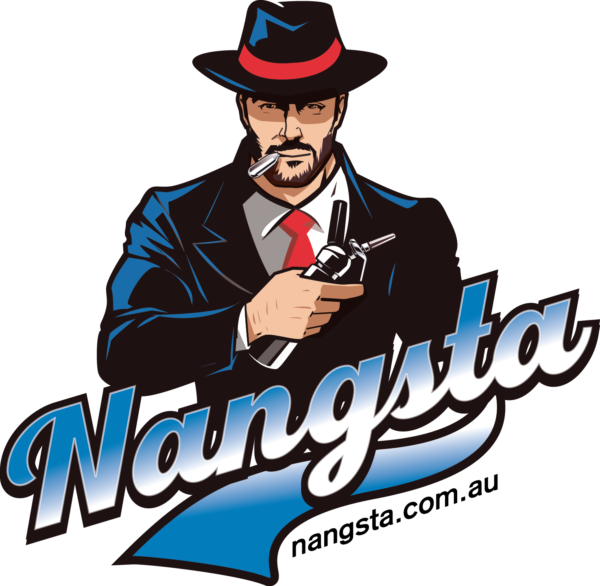Introduction
In current years, making use of nitrous oxide (N2O), frequently known as "nangs" or "laughing gas," has risen in appeal, especially amongst young adults and party-goers. This pattern has actually caught the attention of lawmakers and health authorities worldwide, leading to a patchwork of regulations governing the sale and usage of cream chargers, nang tanks, and their associated items. As you navigate through this landscape, comprehending the legal structures surrounding N2O is crucial. This article aims to break down the complexities of nang policies in your location while supplying valuable insights into safe practices, possible risks, and the social implications of nitrous oxide usage.
Understanding Nangs: An Overview
What Are Nangs?
Nangs are little canisters filled with nitrous oxide (N2O), often utilized in cooking applications to whip cream. Nevertheless, they have actually gotten prestige for leisure usage due to their blissful impacts when breathed in. This area will dig deeper into the origins and uses of nangs.

The Chemistry Behind Nitrous Oxide
Nitrous oxide is an inorganic substance with the formula N2O. Typically referred to as laughing gas, it serves as a dissociative anesthetic when breathed in. However, it also has commercial uses beyond culinary applications. Comprehending its chemical properties is crucial for comprehending why it's regulated.
How Are Cream Chargers Used?
Cream chargers can be found in various brands like NitrousWhip and BestWhip, typically consisting of nitrous oxide for light whipping cream or producing foams in cooking meals. Nevertheless, their misuse raises safety issues that demand regulative oversight.
Making Sense of Nang Laws in Your Area
Why Are Nang Regulations Necessary?
With rising events related to nitrous oxide abuse-- such as accidents from impaired judgment-- guidelines aim to protect public health by imposing accountable sales practices and informing consumers about safe usage.
Key Regulative Bodies Involved
Different areas have unique firms overseeing the regulation of nangs and related products:
- Health Departments: Display health impacts. Consumer Safety Boards: Ensure item safety. Local Law Enforcement: Impose laws against prohibited sales.
Understanding which bodies are involved can assist you stay informed about local regulations.

Common Laws You Might Encounter
Age Constraints on Purchase
Many locations implement age constraints on acquiring cream chargers or N2O canisters to decrease recreational abuse amongst minors.
Sales Accrediting Requirements
Certain jurisdictions need suppliers offering nitrous oxide to get specific licenses. This ensures that just authorized sellers distribute these products.
Limitations on Quantities Sold
Regulations might restrict the number of canisters an individual can acquire at once, targeted at suppressing bulk purchasing for leisure use.
Local Laws vs. Federal Laws: What's the Difference?
While federal laws offer a baseline for policy, regional municipalities often impose more stringent guidelines customized to their neighborhoods' needs. Familiarizing yourself with both levels is necessary for compliance.
Exploring Health Ramifications of Nitrous Oxide Use
Short-Term Effects of Breathing in N2O
Inhalation produces instant impacts such as bliss or lightheadedness however can also result in harmful effects like hypoxia if https://nangsta.com.au/ misused.
Long-Term Health Dangers Associated with Misuse
Chronic usage can lead to neurological damage or vitamin B12 deficiency. Understanding these risks helps make informed options relating to nitrous oxide consumption.
The Social Context Surrounding Nangs
Trends Amongst Young people and Party Culture
Nangs have become synonymous with celebration culture; comprehending this context supplies insight into why policies are being implemented.
Public Understanding and Media Coverage
The media typically sensationalizes occurrences including nitrous oxide misuse. Taking a look at public understanding compared to reality provides a more nuanced perspective on nang policies' necessity.
Safety Standards for Responsible Usage of N2O Products
How to Use Cream Chargers Safely?
Responsible usage includes following manufacturer guidelines strictly while making sure proper ventilation during usage.
Recognizing Signs of Abuse
Being knowledgeable about common signs that suggest abuse-- such as frequent purchases or behavioral changes-- can help individuals step in when necessary.

Legal Consequences of Misusing Nangs
What Happens If You're Caught Utilizing N2O Illegally?
Consequences vary considerably depending upon jurisdiction however can include fines or even criminal charges for serious violations.
Alternatives to Recreational Nitrous Oxide Use
Exploring Safe Substitutes for Parties
Instead of utilizing nangs recreationally, think about alternatives like social games or interesting activities that promote fun without risk factors associated with nitrous oxide misuse.
Frequently Asked Concerns (Frequently asked questions)
Are nangs legal everywhere?- No, legality varies by region; constantly check regional laws before purchasing.
- Yes, however guarantee you're certified with age limitations and local regulations.
- Approach them sensitively; think about calling healthcare specialists if needed.
- Yes, charges range from fines to possible jail time depending on local laws.
- Occasional usage may be less dangerous than persistent misuse; nevertheless, it's not without health risks.
- Contact your regional police or consumer safety board straight with any evidence you have.
Conclusion
As society continues grappling with problems surrounding leisure drug use-- including substances like nitrous oxide-- understanding the subtleties behind regulations becomes important for notified engagement within your community. By familiarizing yourself with regional laws governing nangs (cream chargers) while promoting accountable use standards amongst peers, all of us play our part in making sure healthier environments without unnecessary threats associated with nitrous oxide abuse.
This detailed post functions as an essential guide to comprehending nang policies while highlighting accountable practices surrounding nitrogen usage-- a topic increasingly relevant in today's society!